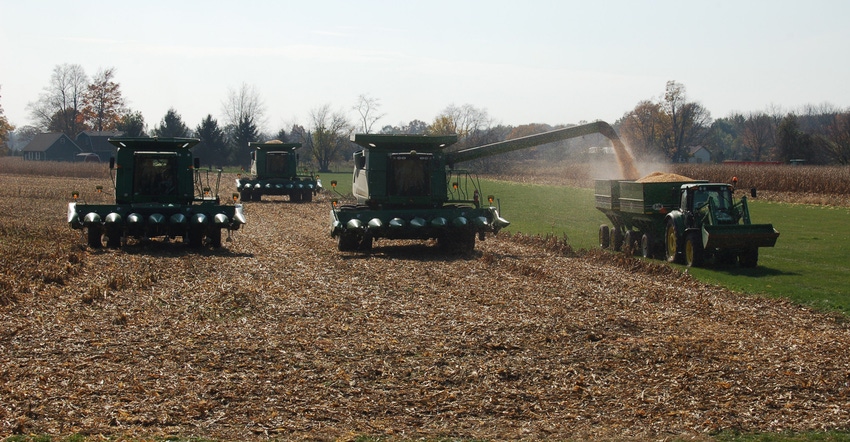
Partnerships are the most common business structure for multi-person farms. According to the 2012 U.S. Agricultural Census, more 4,600 farms in Ohio operate as partnerships. However, there are likely even more farms that are actually partnerships without knowing it. Being in a partnership and not realizing it can cause significant problems.
Ohio law generally defines a partnership as multiple people in a business venture who split profits among themselves. In Ohio, partnerships do not need to be registered with the state. Additionally, a partnership can exist without any formal agreements or documents. As soon as two or more people agree to share profits, they are likely a partnership unless they incorporate as a corporation, limited liability company or some other business entity.
It is a common practice for people who farm together to file separate Schedule F’s instead of a partnership return. The persons involved simply divide all the expenses and revenue between themselves and report to the Internal Revenue Service as individuals. While the IRS may not consider this situation to be a partnership, Ohio law likely will. In the scenario, the individuals are clearly sharing profits and thus are likely operating as a partnership.
So why does it matter if the farming operation is or is not a partnership? One reason is liability. A partner is jointly and severally liable for all the liabilities of the partnership. For example, Ohio Farms is a partnership with $1 million in debt. If Ohio Farms is unable to pay the debt, the creditor can seek payment from the partners. The creditor can seek payment from all the partners or just one partner. Joint and several liability also applies to injuries and property damage. If an employee of Ohio farms injures someone working for the farm, both the partnership and each partner are fully liable for the damages. Imagine not thinking you are in a partnership, only to find out that you are when a lawsuit is filed and that you may be liable for your partner’s actions.
Another situation where being in a partnership matters is when someone leaves the farming operation. Using another example, father and son have been farming together for several years. Father considers himself to be the sole owner of the farming operation but “pays” the son with a share of the profits each year. Father and son have a falling out and son decides to leave the farm. Son claims he has been a partner and is entitled to be bought of his share of the partnership or have the partnership assets sold and receive his share of the proceeds. Again, imagine the father’s surprise when he finds out that he actually is in a partnership and must pay his son for his share of the partnership assets.
Another issue related to partnerships is the ownership of the assets. Assets owned by a partnership do not need to be in the name of the partnership. For example, using the previous scenario, the deed for a farm has the father’s name on it. However, the farming operation paid for the farm and the son is found to be a partner in the farming operation. Son will also likely to be found to have an ownership interest in the farm.
If there is any doubt as to whether a farming operation is a partnership, seek legal advice. If the parties do not want to be a partnership, steps can be taken to ensure that a partnership is not created. If the parties do want to be a partnership, a partnership agreement should entered into to establish each person’s rights regarding management, ownership, dissolution and what assets are owned by the partnership. Many litigation attorneys have earned big legal fees in farm partnership cases. A small amount of planning upfront can avoid big problems in the end.
Moore is an attorney with Wright & Moore Law Co. LPF. Email him at [email protected] or call 740-990-0750.
About the Author(s)
You May Also Like




